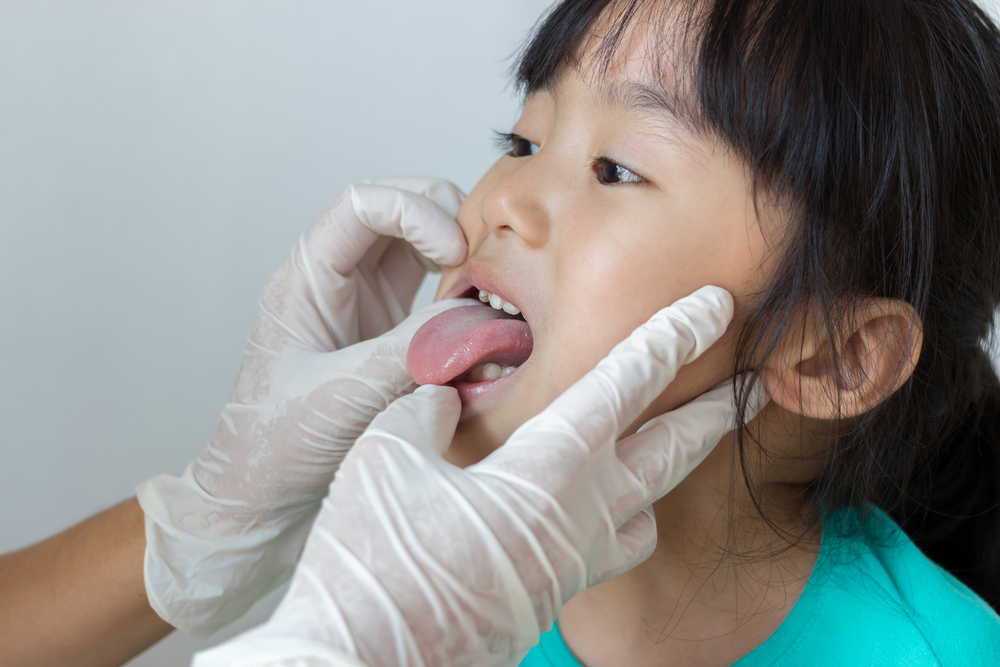Contents:
Medical Video: 15 Things Only People With Social Anxiety Will Understand
Many people feel nervous or become very self-aware on several occasions, such as when giving a welcome speech or job interview. But, social anxiety disorder, aka social anxiety or social phobia, is more than a shame or nervousness that often drowns.
With social anxiety, your fear of shaming yourself is so strong and takes over that you really avoid every situation that can trigger that fear.
Anxiety disorders often appear first in early childhood or adolescence, and tend to occur in women. Social anxiety disorder is a psychiatric disorder that is recognized by the medical world and can be treated effectively, so you should consult a doctor if you think you have this condition.
What is social anxiety disorder?
Social anxiety disorder, also known as social phobia, is a feeling of extreme fear in social situations or involving certain performance - especially an entirely alien situation or where you feel you will be watched or evaluated by someone else.
The basis of social anxiety disorder or social phobia is fear of being observed, judged by the public eye, or embarrassing yourself in public. You may be afraid that people will think badly about you or that you will not perform / work as well as expected or on par with others.
Social anxiety disorder is a type of complex phobia. This type of phobia has a damaging, to paralyzing impact on the life of someone who has it. This disorder can affect a person's self-esteem and self-esteem, disrupt relationships and performance at work or school.
The most common things that can trigger recurrence of social phobia
Social anxiety disorder can wreak havoc on the lives of people who suffer from this condition. Individuals who have social anxiety disorders, or social phobias, may have very limited social or romantic relationships, making them feel helpless, lonely, even alienated.
Some people can experience anxiety and nervousness in certain situations, such as facing a job interview. But for others, anxiety and nervousness are related to certain specific social situations, for example:
- Speak in public
- Appear above the dial
- Meet new people
- Become the center of attention
- Observed when doing something
- Make small talk
- Tempted, teased, or criticized
- Talk to important people or authorized figures
- Called in class
- Dating
- Make / receive calls
- Use public toilets
- Carry out the exam
- Eat and drink in public places
- Speak during meetings
- Attend parties or friend gatherings
Signs and symptoms of social phobia
Anxiety and nervousness are commonly experienced by a number of people to a certain extent, many people feel embarrassed or self-conscious on several occasions, but this will not hinder - or even paralyze - their daily functions. However, individuals who have social phobias will experience excessive anxiety and worry about the situation before, during, and after - looking for reasons to be absent, buy time, or tremble violently when they want to talk until you have difficulty speaking - to disrupt their daily routine and cause tremendous suffering.
Emotional symptoms of social phobia, including:
- Feeling very self-conscious and excessive nervousness in everyday social situations (which other people take for granted)
- Intense anxiety for days, weeks or even months before the upcoming social situation
- Fear that very much will be felt by other people, especially those you don't know
- Fear is so great that you will embarrass yourself
- Fear is so great that other people will realize that you are nervous
Physical symptoms of social phobia, including:
- Blushing, blushing
- Short breath
- Stomach ache, nausea
- Trembling, including a trembling voice
- The heart is nervous or the chest feels tight
- Sweating or hot flashes
- Feeling dizzy or wanting to faint
Behavioral symptoms of social phobia, including:
- Avoid social situations to a certain extent that limit your activities or disrupt your routine
- Avoid eye contact
- Keep quiet or hide behind to avoid other people being aware of you
- The need to always bring friends wherever you go
- Drink (alcohol) before facing any social situation to try to calm down
- Often, children with social phobia refuse to go to school because of their symptoms.
Social phobia is different from shyness
However, social anxiety disorder is not just an ordinary shame that is often misunderstood by the public.
Social anxiety disorder can wreak havoc on the lives of people who suffer from this condition. Individuals who have social anxiety disorders, or social phobias, may have very limited social or romantic relationships, making them feel helpless, lonely, even alienated.
Critics of the diagnosis of this disorder indicate that psychiatrists and pharmaceutical companies publish social phobias, aka social anxiety disorders, in order to increase the sales rate of psychotropic drugs, especially among young people. In addition, some argue that whether social phobia is merely "medicalization" of a variety of spectrums of human temperament.
Responding to the above criticism, quoted from the National Institute of Mental Health, Marcy Burstein, PhD, and the team examined the level of normal shyness among adolescents and other characteristics that overlapped with symptoms of social phobia using data from the National Comorbidity Survey-Adolescent Supplement (NCS-A), a national face-to-face survey of more than 10,000 American youth aged 13-18 years. The social phobia studied uses a set of standard diagnostic criteria from the psychology and psychiatric manual: Diagnostic and Statistical Manual (DSM-IV), while shame is examined with the scoring session from the question "How embarrassed you are when surrounded by people you don't know well ? "
The research team found that while half the population of participants identified themselves as shy, only 12 percent of the total shy children also met the criteria of social phobia in their lives. Moreover, among young people who do not identify themselves as shy, about five percent of them meet the criteria for social phobia. These results indicate that shyness / shyness with social phobia is not always directly related. In fact, the presence of a characteristic social phobia in oneself may be an independent entity, separate from shame, in some cases.
In addition, individuals who have social phobia are consistently more likely to also have other psychiatric disorders in their lives, such as depression, personality disorders (PTSD, for example), or drug abuse, when compared to a group of shy children. Those who have social phobia also show a higher level of inability to work in a work or school environment, or between family members or peers. Furthermore, they are less likely to get help care than children who are really shy.
In short, Burstein's research proved that social phobia is not just a misunderstood shame. Conversely, social phobia affects a small proportion of young people and only a small percentage of them consider themselves shy.
Social phobia is also not os ansos'
"Ansos" is a modern acronym popularized by Indonesian youth, which originates from an "antisocial" extension. This term is often used for people who are considered loners, have no friends, and "don't hang out".
Characteristics of introverted personality are often assumed to be shy, social phobia, or even avoidance of social situations. But make no mistake. Many introverts can socialize easily; they are only more comfortable if they are not socializing. Meanwhile, the actual antisocial personality disorder is characterized by exploitative patterns of behavior, full of deception, ignoring the law, violating the rights of others, and being rude (inclined to criminal) - without a clear or logical motive.
For someone who has a social phobia, his involvement in a particular social situation can threaten his safety.
This situation may be very frightening to you so you experience excessive anxiety just by thinking about it or trying as hard as possible to avoid it. They are afraid to act or say something that they think will be very embarrassing, such as blushing, sweating, or appearing as someone who is incompetent ("I will look like a fool"; "My voice will sound shaky and I will definitely embarrass myself ";" People must think I'm very stupid "). And even though you may realize that your fear is a little irrational and excessive, you cannot do anything to reduce the anxiety.
The fear of having a social situation can sometimes accumulate and trigger panic attacks, where you feel tremendous fear, panic, and anxiety. Panic attacks usually only last a few minutes. You can also experience some physical symptoms, such as feeling sick / feeling unwell / hot cold / nausea and wanting to vomit, sweating profusely, and the heart pounding. These symptoms often reach the peak before completely subsiding. Although symptoms like this can be worrying, they do not cause physical damage.
What are the causes of social anxiety disorder?
Similar to many other mental health conditions, social anxiety disorder is the most likely disorder to occur as a result of a combination of genetic and environmental factors.
Anxiety disorders often decrease in the family, so you are more likely to have this disorder if a close family member has the same condition. However, the exact reason for the relationship between genetic makeup and learned behavior is still unknown.
Parental behavior can also have an impact on the development of social anxiety disorders in their children. If you have parents who are always worried or little about contaminating you, this can affect your ability to deal with anxiety during childhood, adolescence, and adulthood.
If you think you have this condition, you should try to visit a doctor. The two most common types of therapy for dealing with social anxiety disorder are prescription drugs (antidepressants or anti-anxiety) and psychotherapy or cognitive behavioral therapy (CBT). Both approaches can be done together as a combination.
READ ALSO:
- Can Men Also Menopause?
- Identifying Dual Personality Dissociative Disorder Alias
- Benefits of Speaking Alone for Mental Health












